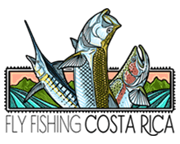The Switzerland of Central America
Situated amongst a cluster of countries with slightly troubled pasts, Costa Rica has maintained a state of peace and neutrality for the better part of the past 70 years, earning it the nickname the “Switzerland of Central America.” In fact, the Ticos (as Costa Ricans call themselves) have even taken this notion of peace one step further by abolishing their national army in 1948 – the first country in the world to do so.
But Costa Rica is much more then a political science case study, and the extreme natural beauty one finds in this country will awe even the most traveled nature enthusiasts. Fiery volcanos, lush tropical rainforests, some of the world’s last intact deciduous dry forests, verdant cloud forests, and high alpine paramo are just a sample of the many rich ecosystems that exist in a landmass the size of West Virginia. Biodiversity surveys have shown that up to 4% of the earth’s species inhabit the country’s many microclimates, and where there is great terrestrial diversity there is often also great aquatic diversity.
THE FISHING
Costa Rica is home to an amazing range of fish species. Two oceans and a variety of rivers and lakes equates to the ability to target many different species all within a relatively small geographic space. And we specialize in putting you in direct contact with this incredible angling diversity. Focus your efforts on a particular fishery or spread your trip across the whole range of available fish species. Plus, if you’d like to combine your angling activities with non-angling or family activities like other adventure sports (rafting, sea kayaking, surfing, canopy), wildlife watching, cultural exploration, or pure R&R we know this country inside and out and can help put together the perfect experience.
One of the fabled quests of the traveling fly angler to Costa Rica is the Costa Rican Grand Slam. This requires catching a billfish in the Pacific, a rainbow trout in the Talamanca mountains, and a tarpon on the Caribbean (or within one of its drainages). Many argue which species is the most difficult to catch on fly, and while catching all three in one day may be a task reserved for a select few considering the required helicopter transport, we hope that the thought of pursuing such a goal will inspire you to think of your own quest for diversity in a country known for just that.
GETTING HERE
By Air – Travel to Costa Rica has become easier over the years with many direct flights to capital city San Jose (SJO). Even so, often times a San Jose overnight is required at the beginning and end of your trip.
TOURIST VISA
Most nationalities do not need a special visa to enter Costa Rica. A valid passport is required, however, and upon entering Costa Rica travelers are granted a 90 day tourist visa. Some countries, however, will require a special visa. Inquire with us or your local Costa Rica embassy to be sure.
SAFETY
Costa Rica is a very safe country, but caution should be taken like in any other place – especially in major cities like San Jose. Use your street smarts and you should be fine, and when in doubt hop in a taxi or ask someone for help. Most Ticos are extremely friendly, can speak English, and are very used to seeing tourists. With a country as wild as Costa Rica, other dangers to consider are nature-related. While highly improbable, riptides, earthquakes and volcanic eruptions are possible. Some venomous wildlife can also pose a threat to anglers, so caution should be taken to avoid these critters. Being that Costa Rica is near the equator, the sun is also very powerful here – be sure to bring plenty of strong sunscreen. And don’t forget the DEET – a couple of squirts will keep the biting insects away. Medical facilities are very well distributed throughout the country, and often not more then a couple hours away maximum. From bumps and bruises to more serious situations, rest assured we will get you to the nearest facility as quickly as possible.
We strongly recommend or even require 3rd party insurance for many of our programs. We are happy to help you find the right provider should you require it.
Costa Rica is very proud of the fact that tap water can be safely consumed everywhere in the country, from the cities to the most remote reaches. Even so, we provide reusable water bottles on most trips and refills with filtered water will be available.
STAYING CONNECTED
Some folks activate roaming features on their cellular phones, but we recommend buying a local SIM card for your phone. There is coverage in all but the very remotest of places, and therefore phone and internet is available through local networks. The best place to buy such a card is either in San Jose or at the airport upon arrival next to the baggage claim between immigration/customs. These providers can help you install everything to be sure it works.
CASH AND CREDIT CARDS
USD and Euros are accepted in many places, but we recommend exchanging some money to local currency (Colones). This can be done on arrival at the airport. There are several places next to baggage claim between immigration/customs. Most of our programs include all meals, transport, etc. so you won’t need much, but we absolutely recommend exchanging some money to cover alcohol, souvenirs, laundry, roadside fruit, etc.
In San Jose most restaurants, shops, and hotels accept credit cards such as VISA and MASTERCARD, and many also take AMEX. As we get further outside of the major cities, use of credit cards becomes a little bit more tricky.
